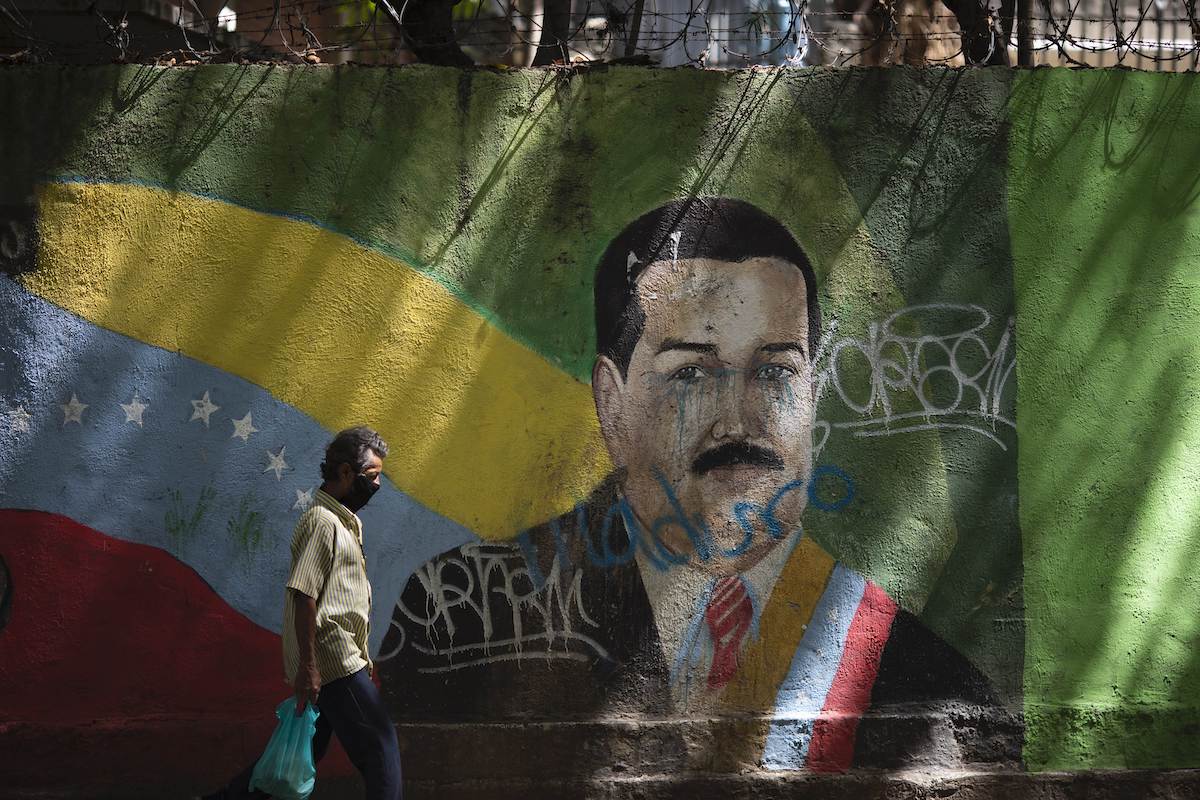

A man wearing a face mask amid the COVID-19 pandemic passes a mural of Venezuelan President Nicolás Maduro in Caracas, Venezuela, Wednesday, July 22, 2020. (AP Photo/Ariana Cubillos)
CARACAS, Venezuela (AP) — The European Union said Tuesday it won’t send observers to monitor Venezuela’s upcoming congressional election, citing a lack of fair conditions for a vote that could erase the opposition’s last major domestic stronghold of power.
The government had invited the EU to send an electoral mission, but “I have to conclude that conditions are not met, at this stage, for a transparent, inclusive, free and fair electoral process,” EU foreign policy chief Josep Borrell said in a statement.
Still, he welcomed a report that President Nicolás Maduro’s government and an unspecified sector of the opposition are in talks over possibly delaying the vote, which is now set for December 6.
The election will fill seats in the National Assembly now headed by opposition leader Juan Guaidó, who the U.S. and more than 50 other nations recognize as the country’s legitimate leader. They said Maduro’s reelection had been fraudulent.
Maduro sees the election as an opportunity to take over the one branch of government now out of his control and the pro-government Supreme Court made that more likely by ordering changes in the leadership of several major anti-Maduro parties. Opposition parties say the electoral commission also is stacked against them.
More than two dozen leading opposition parties recently announced a boycott, aiming to undermine the vote’s legitimacy.
Maduro is fighting off a campaign to oust him by Guaidó’s coalition amid a political and economic crisis in the once-wealthy oil nation that has led to mass migration.
Maduro’s Foreign Affairs Minister sent EU leaders a letter saying a sector of the opposition is in talks with the socialist government about a possible election delay. Yet, it was unclear who Maduro’s government is negotiating with. Other parties that don’t include Guaidó and claim to be opposed to Maduro have been in talks with the government and have agreed to go ahead with the vote.
Borrell welcomed the discussion of the delay.
“It is a step in the right direction, but not enough for the European Union to be able to deploy an Election Observation Mission,” he said. “To do that, we need a precise and a broadly positive answer to the minimum requirements defined by the opposition.”


